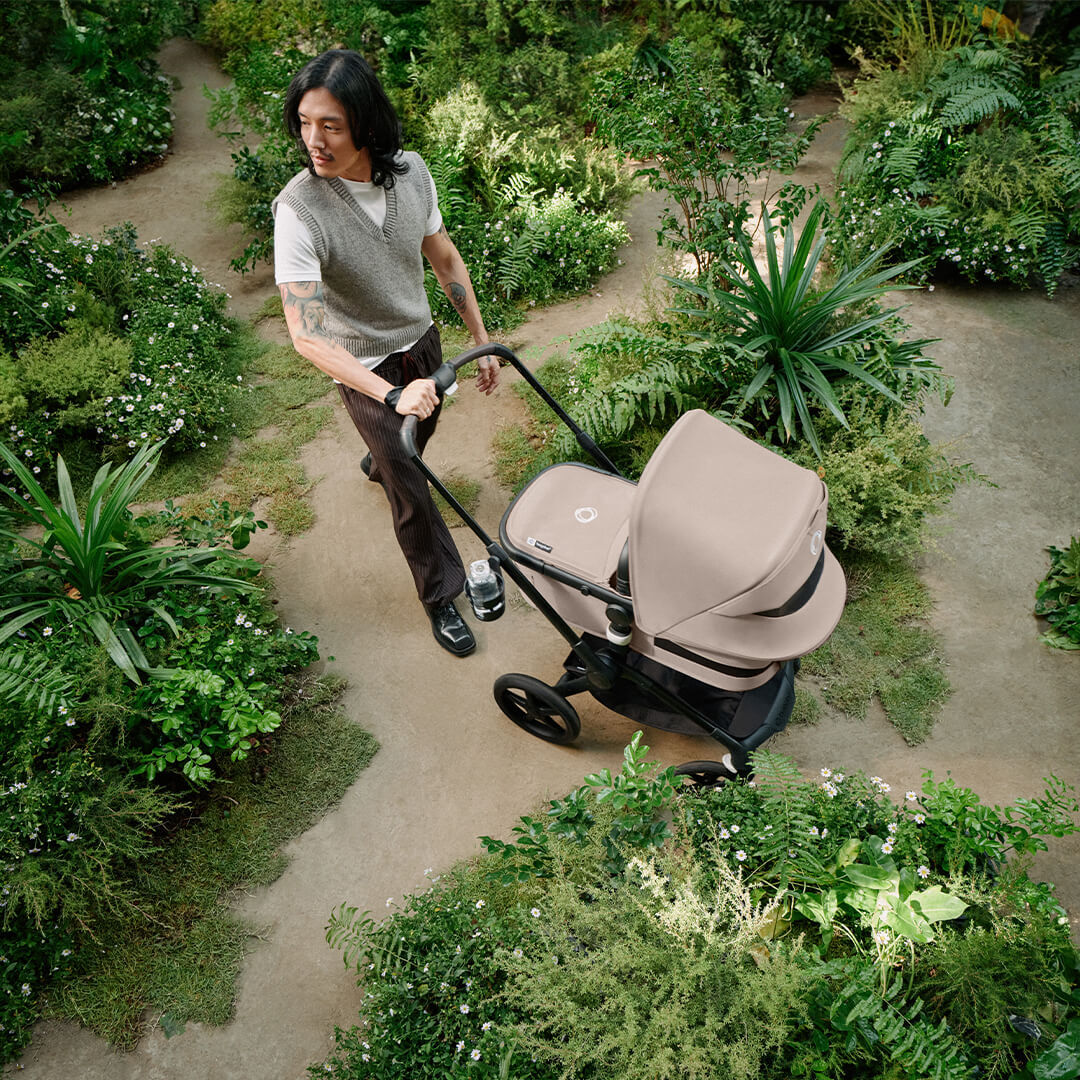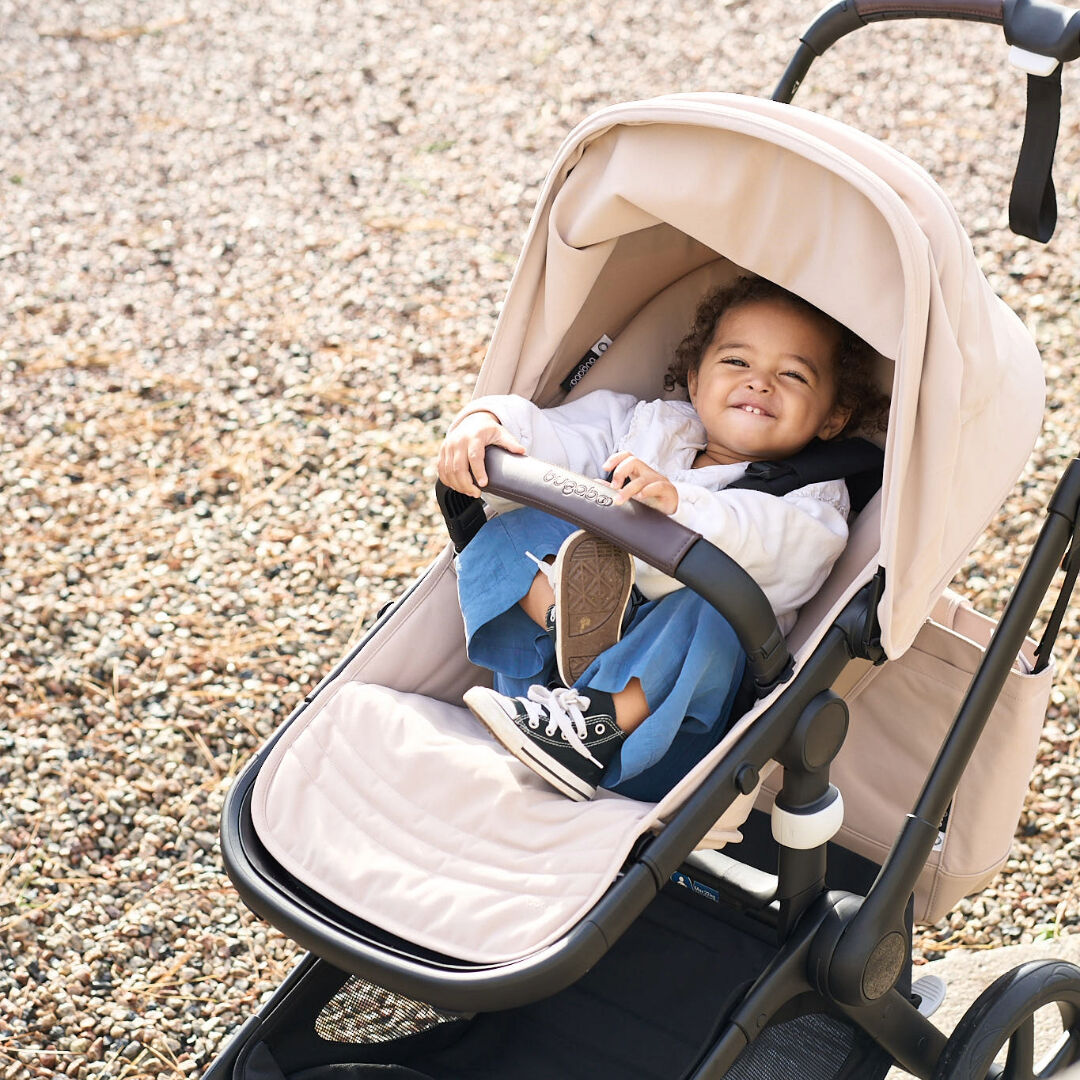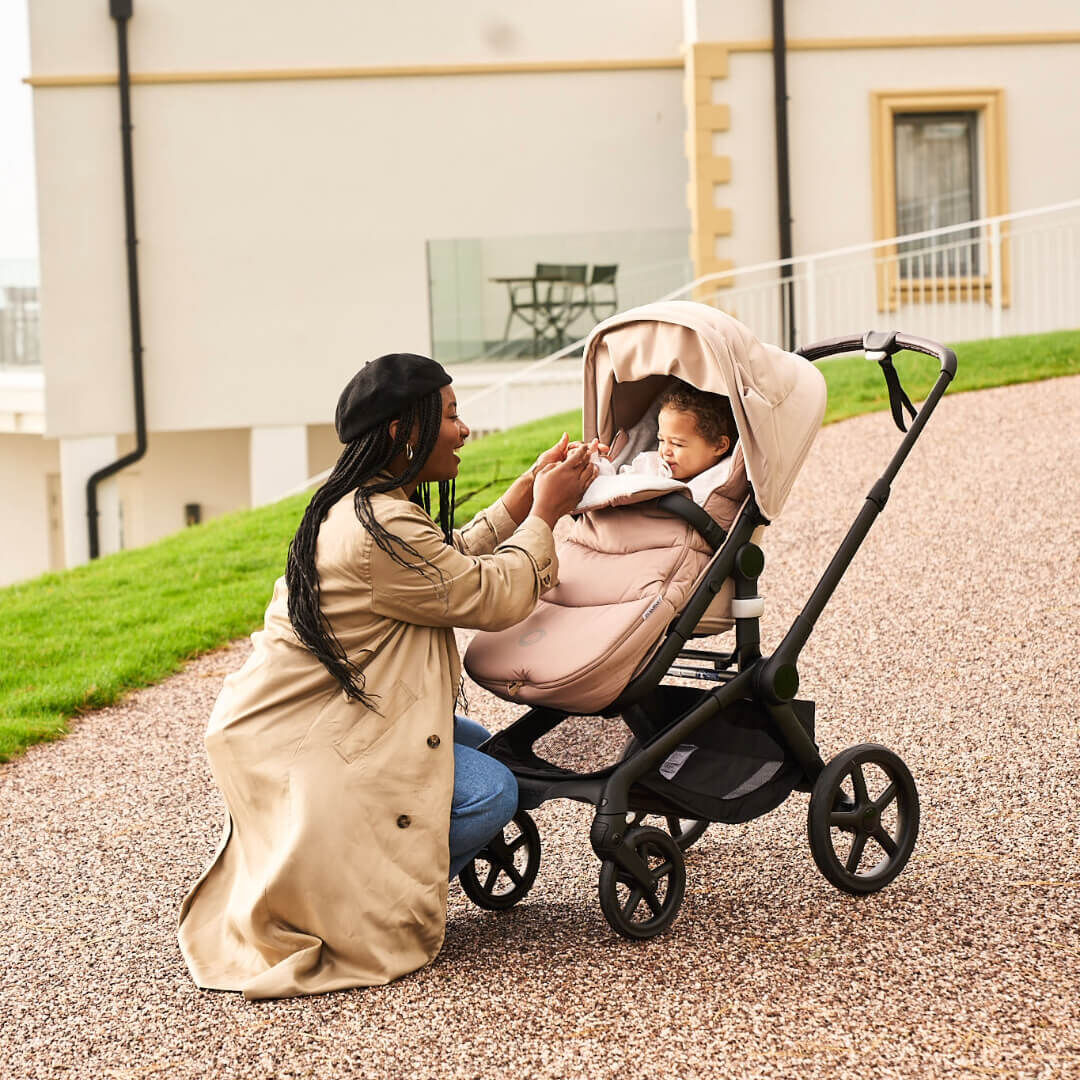The secrets of postpartum
Looking after myself to take care of my baby.
Belén Martínez Monasterio CEO BabyBe Woman
My name is Belén Martínez Monasterio, a physiotherapist specializing in pelvic floor, respiratory, and cardiac physiotherapy. I am also the founding partner of BabyBe Woman, a center dedicated to comprehensive women's care during all life stages, focusing especially on those in which women experience greater changes – such as pregnancy, postpartum, and menopause. We also look at babies' development during their first two years of life.
I've dedicated over 16 years to caring for women and babies, and after becoming a first-time mother 7 years ago, my focus has expanded. Alongside providing care, my greatest commitment is to understanding the importance of self-care – not just for the baby, but for the mother as well, especially during the unfamiliar postpartum stage.
The postpartum phase is often overlooked for the mother, as all attention centers around the newborn, leaving her needs sidelined. However, it's essential that you feel calm, cared for, and protected during this period. You will experience plenty of physical changes and disruptions in sleeping habits, while learning to get to know your newborn, too. In the process, it's easy to become so focused on the baby that we neglect our body's needs, often dismissing discomfort, pain, or symptoms that may indicate underlying issues.
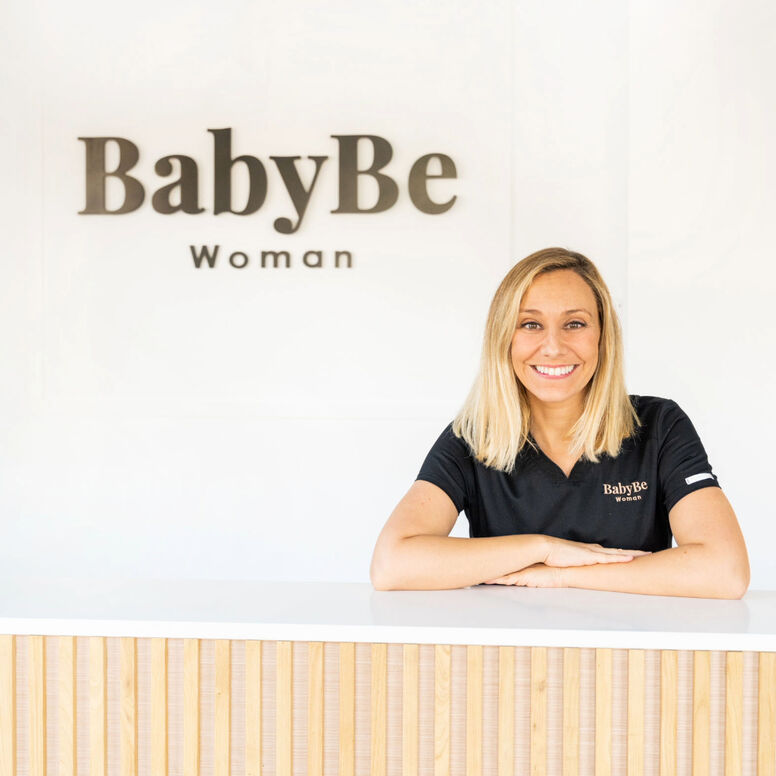
With that in mind, let me give you some essential recommendations to ensure a safe postpartum period:
Know the difference between the early postpartum stage and the late postpartum stage. In the early stage, it's crucial for you to rest as much as possible, since gravity will be the worst enemy for your overworked abdomen and pelvic floor. In the late stage, you should slowly become more active, but only after you've completed a postpartum evaluation.
To achieve a healthy body, you need to feel good internally. This means taking the time to recover and strengthen your abdomen and pelvic floor without rushing the process. This is often harder than it sounds. First and foremost, you need to know, feel, and develop a keen awareness of these muscles, since your abdomen and pelvic floor will have undergone significant strain during gestation.
Take care of your posture and let your spine elongate naturally. This will help engage your deepest abdominal muscles, which serve as your body's natural support girdle.
Breathe deeper and more often to strengthen your diaphragm and improve the efficiency of your breathing.
Learn how to handle weights correctly. Practice proper lifting techniques, like keeping your back straight and bending your knees and hips while lifting. Avoid carrying too much weight and straining yourself. Becoming a mother means taking on a great load – literally – as your baby who was born at 3 or 4 kilograms will grow heavier. You'll also have to manage other items such as changing bags, baby essentials, or pushchairs. Since you'll be pushing this pushchair down the street, putting it in your car boot, or even carrying it up and down stairs (if you don't have a lift), it's important to find a pushchair that's manageable and easy to carry or fold.
With my last child, I used the Bugaboo Fox 5, which I've found to be surprisingly easy to steer without having to push too hard. It has large wheels that make it smooth and stable while walking or making a turn, and the handlebar can be easily adjusted to my height. Once my child was a bit older and transitioned to a seat, I switched to the Bugaboo Butterfly. Besides being super lightweight, it folds with just one hand and with minimal effort. This ease of use is important, as excessive physical strain can inadvertently place pressure on the abdomen and pelvic floor, weakening them over time. By being mindful of how you carry weight and move, you can protect your body during this demanding phase.
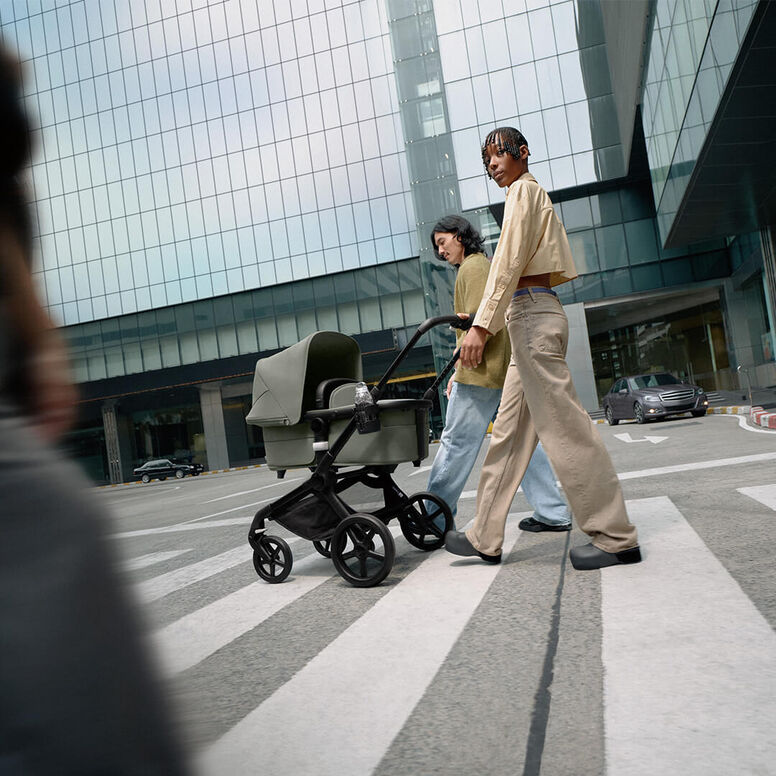
Discover the benefits of self-care and feeling good about yourself. While it may be difficult to prioritize yourself when you have a dependent baby, remember that you need to take time for yourself to provide the best care for them.
Pay attention to your diet, since it's the key to both you and your baby's health. A nutritious diet is crucial to improve your physical exhaustion. 70% of our connective tissues are water, and proper hydration is essential to cell regeneration, quality of milk (if you're breastfeeding), and preventing constipation (which is a common issue during postpartum). It's also vital that your baby is introduced to a rich, varied, and balanced diet once they start with solid food. This stage is important for them to explore tastes, experience different textures, and develop fine motor skills through the coordination of bringing food to their mouth. A well-designed high chair is crucial to this process. It should let your baby adopt a proper posture, with an adjustable footrest that supports their legs at a 90-degree angle for optimal balance, stability, and comfort. The chair should also have a wide seat for flexibility during mealtimes, and a large backrest to comfortably support their back.
At home, we're using the Bugaboo Giraffe high chair, which we appreciate not only for its design but also for being easy to adjust without using any tools. This means our baby always sits in a proper posture that's good for his development.
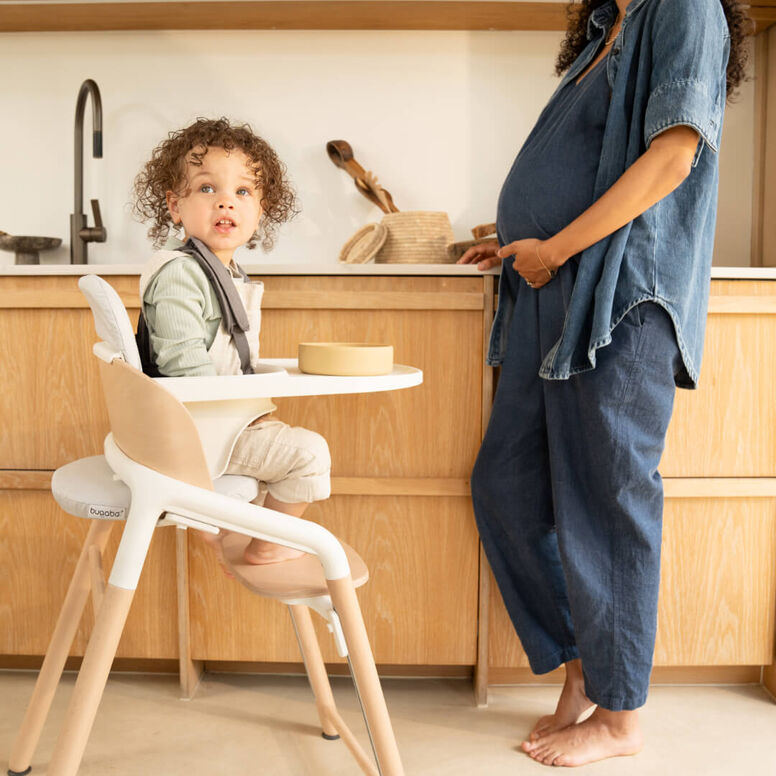
Speak up and express your own needs if you feel lonely or experience difficult emotions. Build a support network and know how to ask for help. There's no need to place unrealistic expectations on yourself.
In conclusion, it's important to remember that your postpartum physical recovery is not a sprint. It's an adaptation period where you need to be mindful of your daily life activities. As you slowly recover your strength and become more active, you can gradually increase the intensity of your exercises. This process should begin with an abdominopelvic assessment from a specialized physiotherapist, who will help you design a progressive and respectful recovery plan.


